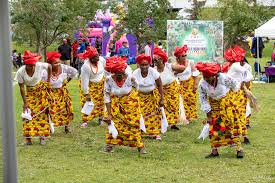The Ibo (or Igbo) tribe, one of the largest ethnic groups in Africa, is predominantly found in southeastern Nigeria, though its influence extends far beyond its geographical boundaries. Known for their enterprising spirit, cultural resilience, and deep-rooted sense of community, the Ibo people have earned a reputation as some of the most traveled and widely dispersed people in Africa. This mobility is not limited to internal migrations within Nigeria but spans across the globe, with large Igbo communities thriving in Europe, North America, and beyond. In this article, I will cover the history and actions of the Igbo community, as seen through the World Igbo Congress’s (WIC) operations in the diaspora, both to establish their presence in their chosen nations around the world and, more crucially, to maintain links with ‘hometown’ groups. This occurs through both major and small-scale economic activities, such as capital construction projects, local investments, and foreign recruiting from ‘home towns’ (often tiny villages) in Eastern Nigeria.
Historical Background of Igbo Mobility.
The Igbo people’s tendency to migrate has historical roots. Pre-colonial Igbo society was organized into dispersed groups, with commerce and farming being important economic pursuits. The Igbo were not limited to a centralized structure, and trade networks linked them to other parts of Nigeria and West Africa. Their involvement in business encouraged a culture of mobility, as they traveled extensively to exchange products and services.

The transatlantic slave trade also helped disperse the Igbo population. Many Igbos were transported as slaves to the Americas, primarily to the Caribbean, Brazil, and the United States. The historical presence of Igbo culture may still be seen in areas like Jamaica and Haiti, where components of Igbo history are perpetuated in language, music, and religious rituals.
The Spirit of Enterprise and Exploration.
The entrepreneurial mentality is important to Igbo mobility. Igbos are well-known for their adaptability, tenacity, and capacity to thrive in a variety of circumstances. Over the last century, economic possibilities have prompted a substantial number of Igbos to migrate both within and outside Nigeria. Major Nigerian cities like Lagos, Abuja, and Port Harcourt have large Igbo communities, many of whom have relocated from rural areas in quest of better economic opportunities.
Igbo entrepreneurs have established themselves as major actors in Nigeria’s trade and industry. From tiny enterprises to major corporations, the Igbo are frequently at the forefront of innovation and progress. This entrepreneurial energy is one of the primary reasons Igbos travel so much, since they are continuously looking for new markets, opportunities, and situations in which to apply their business skills.
(Emmanuel Nnadozie. 1996. “African Entrepreneurship and Private Sector Development,”. Presented at the 1996 Annual Meeting of the Academy of International Business (September 26-29, 1996, Banff, Alberta, Canada).
Diaspora and Global Reach.
The Igbo diaspora is one of the most visible African populations overseas. With the rise of globalization and the greater accessibility of international travel, Igbos have traveled in huge numbers to Europe, North America, and Asia. Cities including as London, New York, Atlanta, and Houston have large Igbo populations, which have developed close-knit communities.
(Barth Chukwuezi, “Thick and Thin: Igbo Rural-Urban Circularity, Identity, and Investment.” Journal of Contemporary African Studies (2001).

Education is another motivating factor behind Igbo migration. Igbos place a great priority on education and frequently pursue opportunities to study abroad. Many Igbo students have migrated to Europe and North America to further their education, often staying in these countries and contributing to the advancement of professional and academic disciplines.
Social and Cultural Connectivity.
Despite being geographically spread, the Igbo people maintain deep ties to their cultural heritage. Even in the diaspora, cultural associations, festivals, and community organizations help to preserve Igbo traditions, language, and customs. The concept of the “Igbo Union” is a powerful force that connects Igbos to their ancestry no matter where they go. Many Igbos keep ties with their home country, traveling to Nigeria for important family gatherings, commercial investments, or holiday seasons such as Christmas and New Year’s.

Challenges and resilience.
While the Igbo people are noted for their accomplishments in many areas of life, their vast travels have presented obstacles. Xenophobia, cultural assimilation, and the difficulties of starting new lives in foreign nations are among the challenges they confront. However, their capacity to overcome misfortune and prosper in different surroundings demonstrates the Igbo people’s tenacity.
The Ibo tribe’s success as one of Africa’s most traveled people stems from their history, cultural values, and entrepreneurial spirit. From pre-colonial trade routes to modern-day global migration, the Igbo have continually searched out possibilities, both local and distant. Their movement inside Africa and around the world demonstrates their versatility and unwavering commitment to their cultural identity. As the globe becomes more globalized, the Igbo people will continue to be a vital and significant portion of the African diaspora.

